North Korea crisis: US seeks Kim Jong-un asset freeze
- Published
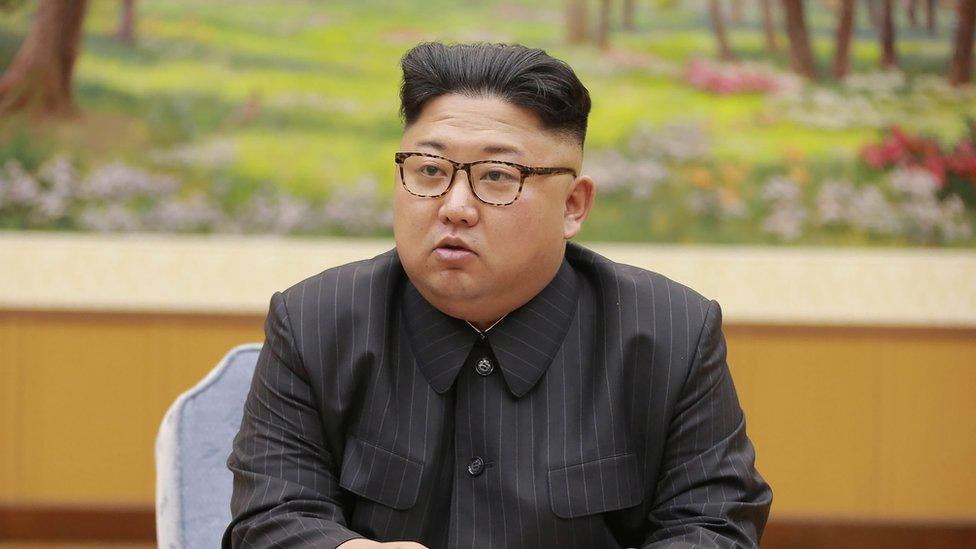
Kim Jong-un's personal assets are being targeted by the US draft resolution
The US has proposed a range of new United Nations sanctions against North Korea, including an oil ban and a freeze on leader Kim Jong-un's assets.
The draft resolution circulated to the Security Council members comes after North Korea's sixth nuclear test and repeated missile launches.
Pyongyang also claims to have developed a hydrogen bomb and continues to threaten to strike the US.
China and Russia are both expected to oppose further sanctions.
North Korea is already under highly restrictive sanctions imposed by the UN that are intended to force the leadership to curtail its weapons programmes.
South Koreans staged protests as US missile defences were installed
In August, a new round of sanctions banned exports including coal, costing North Korea an estimated $1bn (£767m) - about a third of its entire export economy.
But some trade avenues remain open to it.
The draft US proposal calls for a total ban on supplying a range of oil products to North Korea and a ban on its textile export industry.
It also suggests freezing the assets of Mr Kim and the North Korean government, as well as banning him and other senior officials from travelling.
US ambassador Nikki Haley: "Kim Jong-un is begging for war"
North Korean labourers would also be banned from working abroad, principally in Russia's Far East and China.
Remittances from foreign earnings and textile exports are two of the most important remaining sources of income for North Korea.
But it is not clear how China and Russia, which both supply oil to North Korea and wield vetoes at the Security Council, will respond to the US move.
On Thursday, China's foreign minister Wang Yi told reporters that the council should respond further "by taking necessary measures", but did not elaborate.
He added that "sanctions and pressure are only half of the key to resolving the issue. The other half is dialogue and negotiation."
China is both North Korea's and the US's biggest trade partner, and has supported recent sanctions against it.
Russian President Vladimir Putin has argued that the amount of oil his country exports to North Korea - some 40,000 tonnes - is negligible.
"It is not worth giving in to emotions and driving North Korea into a corner," he said.
Both China and Russia have been pushing for an alternative solution.
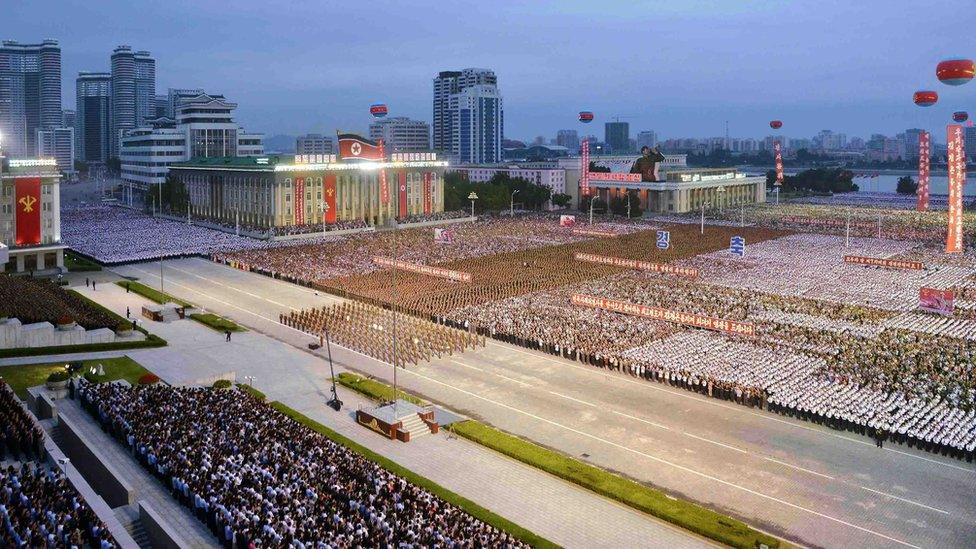
North Korea's news agency said this photo showed citizens celebrating the latest nuclear test
They are proposing that the US and ally South Korea stop their military drills - which anger the North - and end the deployment of the controversial anti-missile Thaad system in South Korea, in return for Pyongyang ceasing its nuclear and missile programme.
The proposal has been rejected by the US and South Korea.
On Thursday, the South's military announced it had completed the deployment of Thaad, reported Yonhap news agency., external
President Moon Jae-in also met with Japan's Prime Minister Shinzo Abe, where both agreed to push for greater sanctions. Mr Abe called for "the greatest possible pressure" to be put on North Korea.
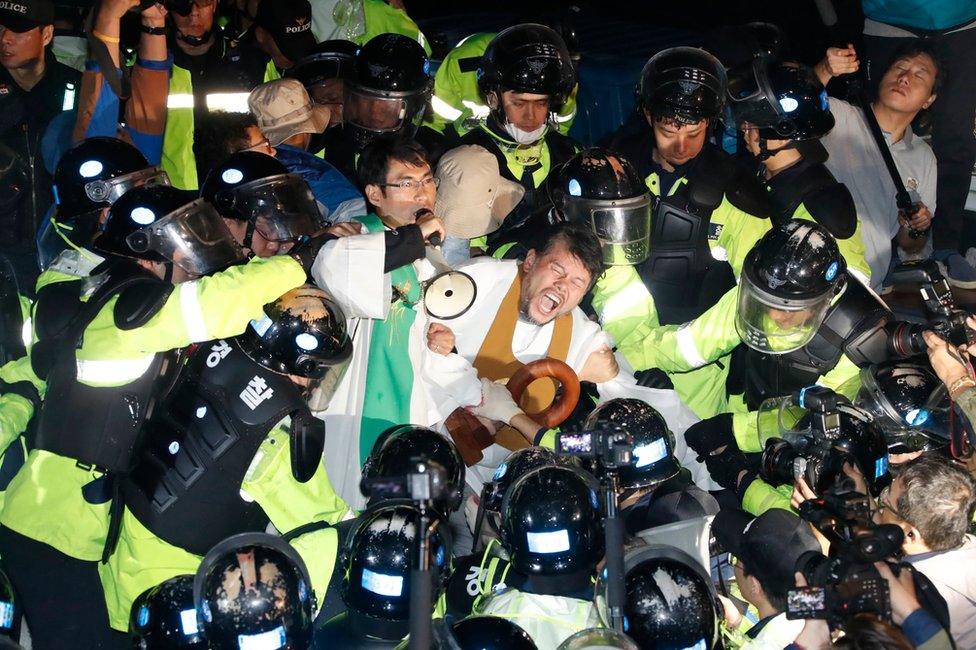
South Koreans protesting the Thaad deployment have clashed with police
US President Donald Trump had previously warned the US could cut off trade, external with countries that do business with North Korea.
The US has indicated that if the resolution is not passed when the Security Council meets next Monday it may impose its own sanctions unilaterally.
Treasury Secretary Steve Mnuchin told reporters on Wednesday night: "We believe that we need to economically cut off North Korea.
"I have an executive order prepared. It's ready to go to the president. It will authorise me to... put sanctions on anybody that does trade with North Korea."
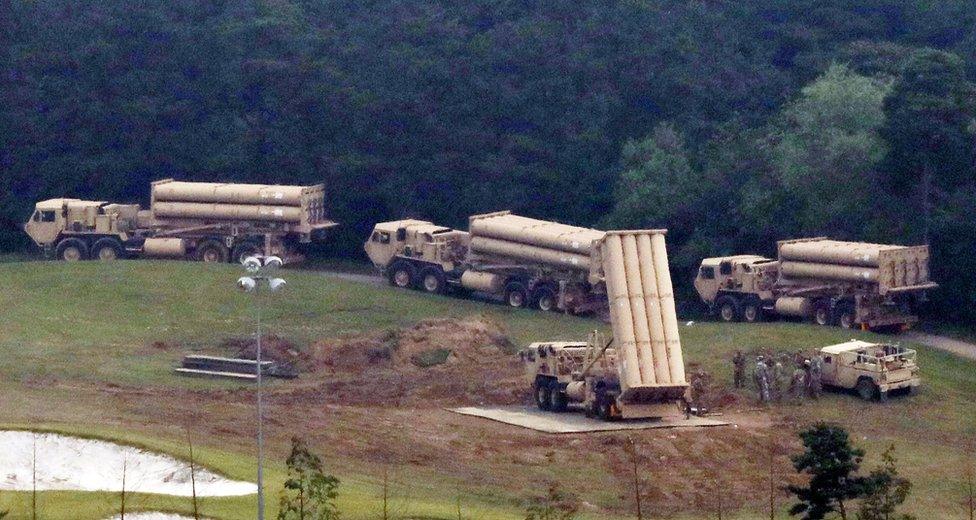
South Korea's military announced it had deployed the controversial anti-missile Thaad system on Thursday
Mr Trump and Chinese President Xi Jinping also discussed North Korea over the phone on Wednesday, where they agreed to "take further action", said a White House statement.
The US president, who has previously threatened a military response to North Korea, told reporters this was was "not our first choice", but did not rule it out.
Mr Trump added: "President Xi would like to do something. We'll see whether or not he can do it. But we will not be putting up with what's happening in North Korea."
Chinese state news agency Xinhua reported, external that Mr Xi called for a "peaceful settlement of the issue" involving "dialogue combined with a set of comprehensive measures".
- Published4 September 2017
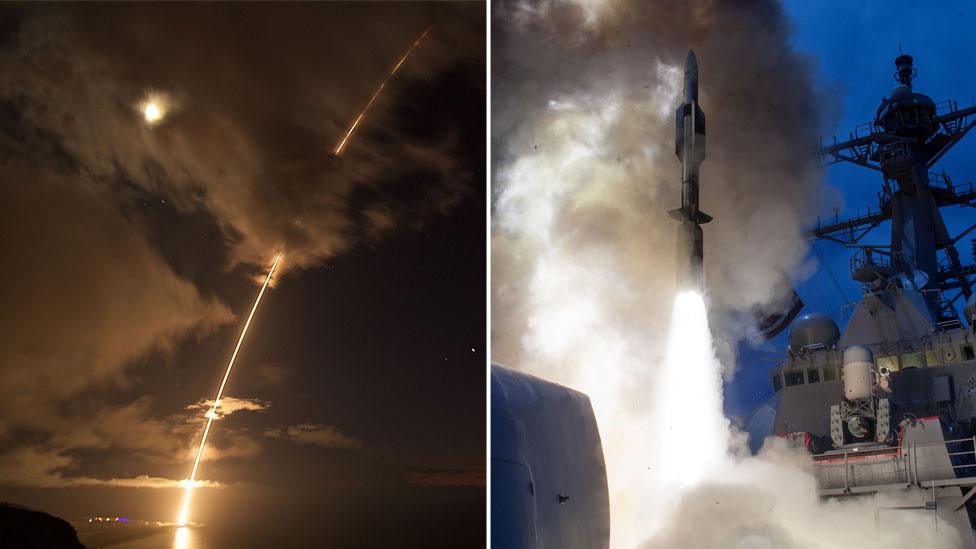
- Published21 April 2020
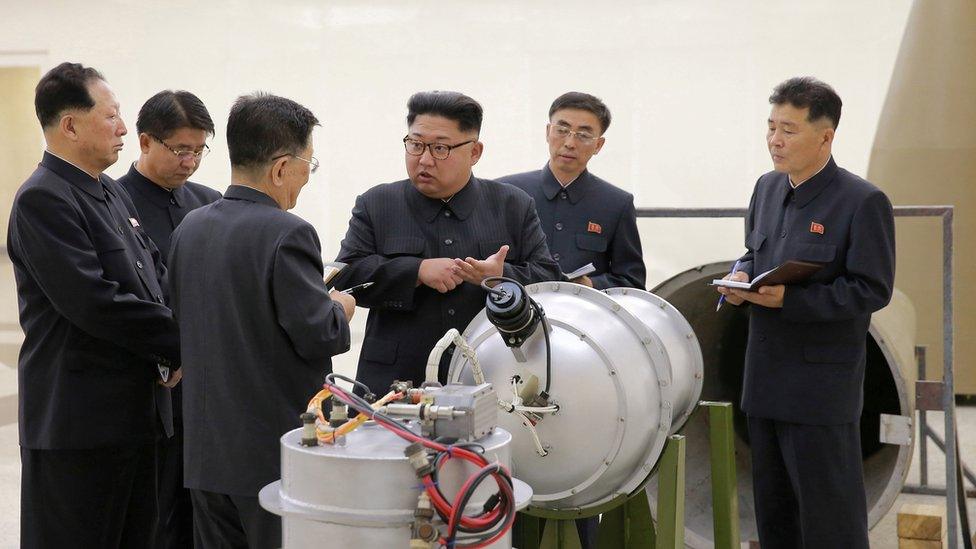
- Published5 September 2017
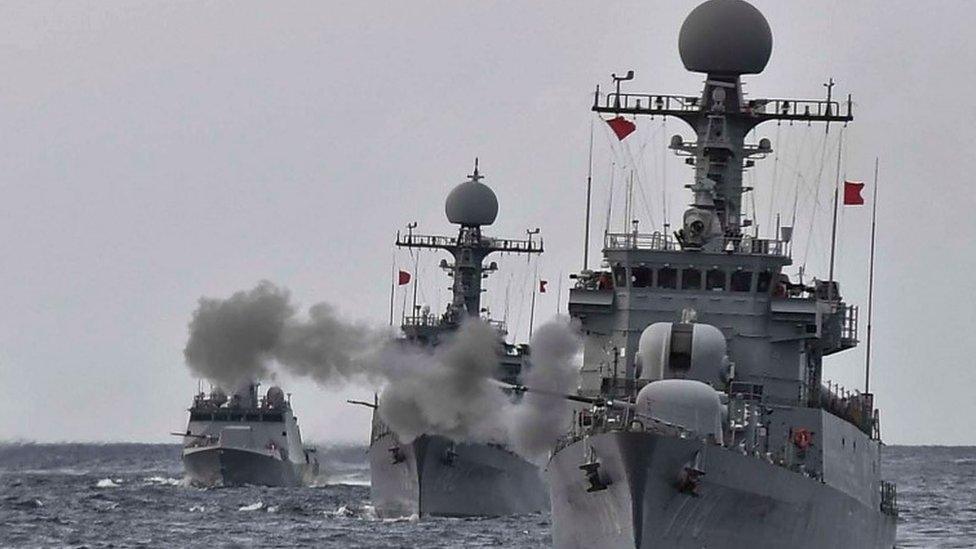
- Published5 September 2017
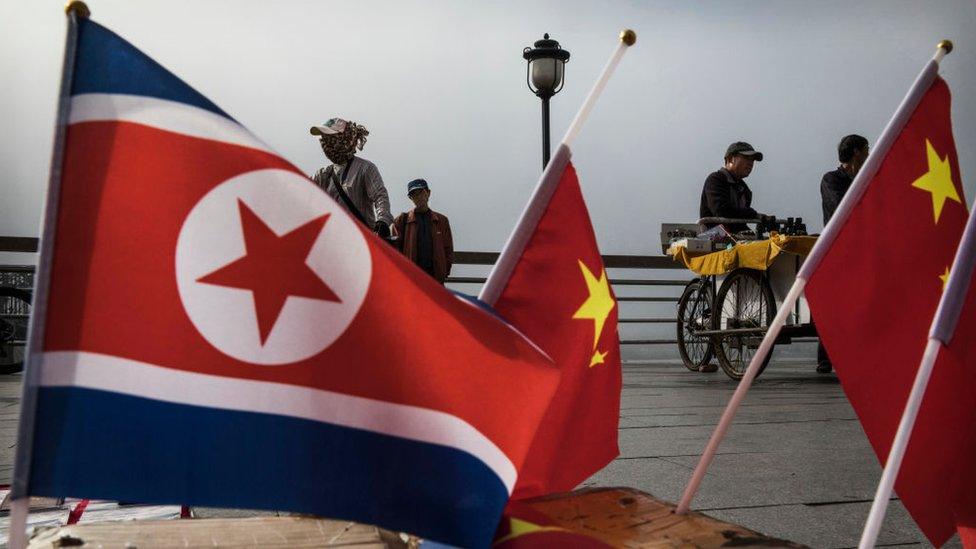
- Published6 September 2017
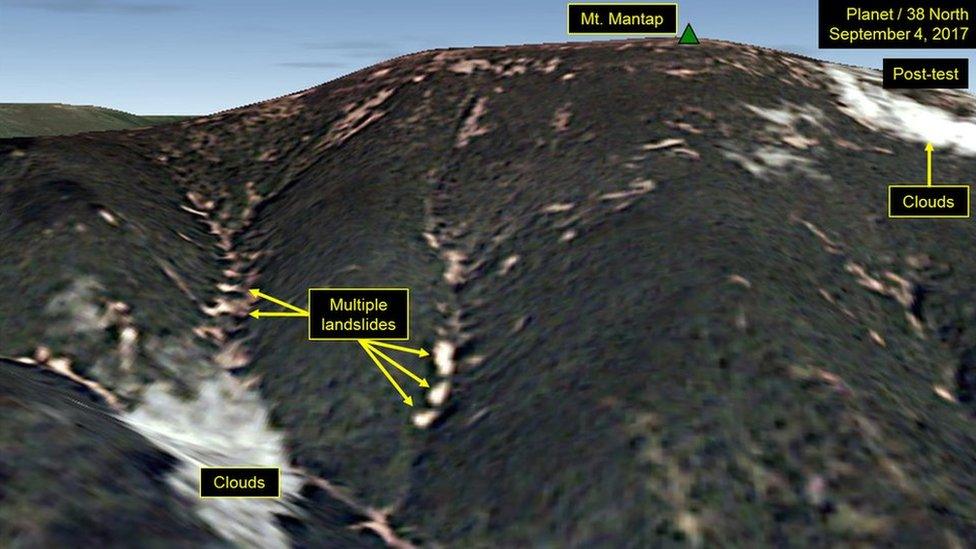
- Published4 July 2017
- Published10 August 2017
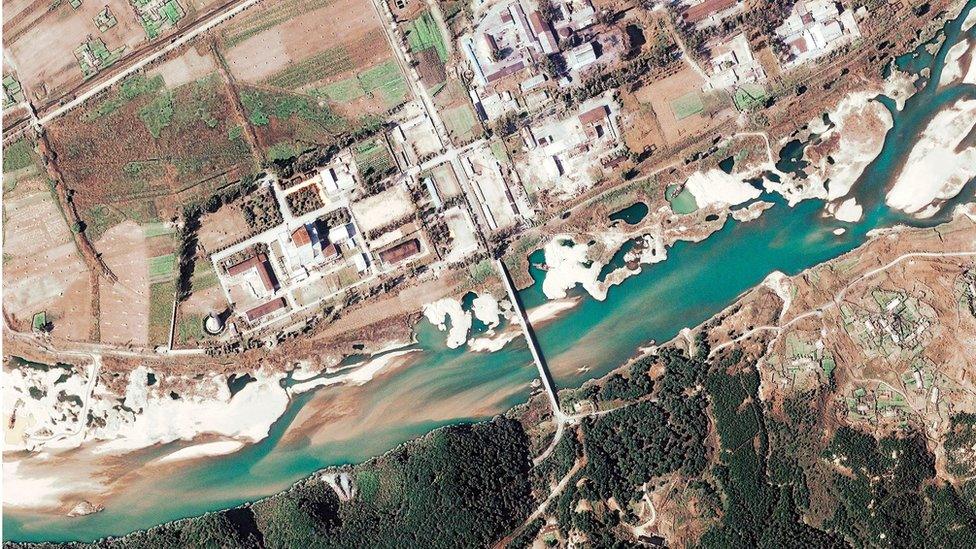
- Published10 August 2017